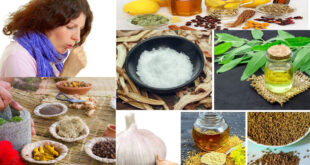H-pylori (Helicobacter pylori)
is a spiral-shaped bacteria that may affect an individual’s digestive tract or lining of the stomach. The bacterial infection commonly causes of ulcer. Every 60 out of 100 individuals are affected worldwide with H-pylori bacteria which causes chronic gastritis and peptic ulcers.

pylori Infection
commonly occurs when a type of bacteria called H. pylori infects a person’s stomach. Most of the time, H. Pylori infection typically do not have any symptoms, but in some people, this infection can lead to disease like peptic ulcers and stomach gastritis.
Pylori Common Causes
There are no concrete causes for this infection according to the study. But some common causes leads to individuals easily affected.

If a person infected with H. Pylori, the person may spread bacterium due to exposure to saliva, vomiting, poop.
Mouth-to-mouth contact and exchange of fluids may also cause this infection.
Eating and drinking contaminated food and water can causing people to take in H. pylori bacteria.
Due to poor hygiene and sanitation may be effected with this bacteria.
Improper plumping, people who belong to overpopulated or rural area may easily be affected by this bacterial infection.
Pylori Common Symptoms
Most individuals with Helicobacter Pylori infections have no symptoms. But people who have ulcers may have symptoms caused by ulcers. Common symptoms can be:
Burning Pain or discomfort in the upper or middle abdomen
Nausea or vomiting, bloating,
Feeling full after a small meal
Acid Reflux
Anaemia
Dark or dark colour bowel movements
Feeling more tired than usual
Natural Treatments to Get Rid of H. Pylori Infections
Medicine can cure H. Pylori Bacterial infection, but sometimes medication side effects lead to more harm to the health of people. You can easily treat this infection naturally.

Fermented Foods
Probiotics mean fermented foods that contain healthy bacteria. Probiotics act to maintain the balance between good as well as bad gut bacteria. Fermented Foods rich in Probiotics enhance your gut as well as overall health. Add fermented foods in your diet, which may able your digestive system to fight with H Pylori. Fermented foods such as milk and coconut kefir, sour cream, yoghurt, kimchi, sauerkraut, chutney, and other fermented vegetables are good choices.
Green Tea
Green tea is also effective in killing and slow down the growth of Helicobacter Pylori bacteria. Drinking green tea during an infection reduces the severity of gastritis. Consuming green tea daily may also protects against stomach inflammation.
Virgin Olive Oil
Virgin olive oil is rich in antioxidants called a phenolic compound. Phenolic compounds have antibacterial properties that fight H. Pylori bacteria. You will get the health benefits of olive oil by using it on a salad than cooking.
Ginger Root
Ginger is an antibacterial rich food that has been using to soothe the stomach. Consuming it helps in combating H. Pylori bacteria and the resulting ulcers. Add ginger to your diet to keep your stomach healthy. You can add it to tea or make ginger hot water.
Broccoli Sprouts
A compound in broccoli sprouts can be effective in fighting against H. Pylori. It prevents colonization of bacteria, reduces gastric inflammation and its effects.
People who have mild symptoms of H. Pylori can be cured easily with natural treatment. The use of antibiotics medication may side effects for some people that can complicate approaches to this treatment. Natural treatment occurs at a slow rate, it doesn’t have any side effects.
Priya Singha: Priya is a freelance writer with an experience of 4+ years of her writing career. She pursued her Masters from DDU, Gorakhpur. She is very passionate about writing and is fond of writing short articles and blogs. She even has worked for several companies. Writing articles in the field of Health & Fitness, Beauty, Home Remedies and Travel are some of her most interested topics and brings out the best in her.
 Health Beauty Tips
Health Beauty Tips







